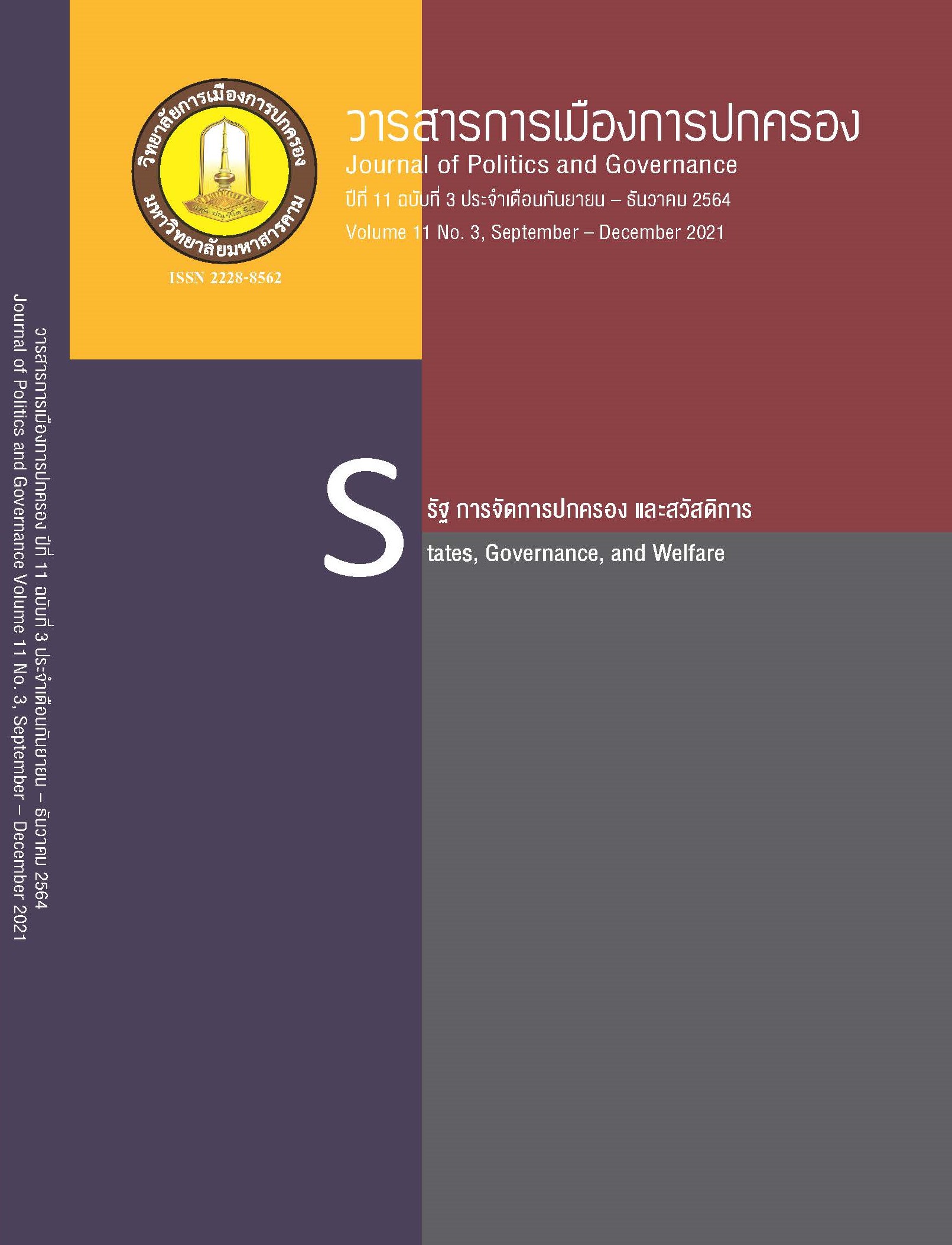Legal Problems of the Suppression Law (Niggahakama) under the Sangha Law on the Code of Criminal Procedure: Study on Administrative Sangha of Mahasarakham Province
Main Article Content
Abstract
The research entitled “Legal Problems of the Suppression Law (Niggahakama) under the Sangha Law on the Code of Criminal Procedure: Study on Administrative Sangha of Mahasarakham Province is aimed to (1) study the principles of punishment for criminal violating Buddhist ethics as defined by the Sangha Supreme Council of Thailand (2) conduct comparative study on the principles of punishment for criminal violating Buddhist ethics as defined by the Sangha Supreme Council of Thailand (no 11) B.E. 2521 and the principles of criminal procedure defined by the Code of Criminal Procedure. The research employed qualitative method with key informant in-depth interview. The interviewees comprised two groups including: the 2 key informants of Buddhist ecclesiastical official monk and Buddhism academics as well as one interviewee from the Administrative Sangha of Mahasarakham Province. The research revealed that the principles of punishment for criminal violating Buddhist ethics as defined by the Sangha Supreme Council of Thailand (no 11) B.E. 2521 and the principles of criminal procedure defined by the Code of Criminal Procedure, the research revealed that the criminal procedure as defined by the Suppression Law (Niggahakama) is as similar to the principles defined by the Code of Criminal Procedure, except, the principles of the Preliminary Examination, the Oath in litem, and the appealing, the expert witness, and the rights to counsel. Nowadays, Suppression Law (Niggahakama) Enforced by Mahathera Council are duplicate the criminal procedure of state which is not suitable for the monks. This is due to the procedure conducted based on the Suppression Law (Niggahakama) requires the specific skill, but with no legal knowledge defined by state. This becomes, as a result, impossible for the Suppression Law (Niggahakama) to be applied by monks. It is therefore necessary for monks to carefully study and to develop understanding about such the Suppression Law (Niggahakama) in order to perform correctly.
Article Details
References
พระเมธีธรรมาภรณ์ (ประยูร ธมฺมจิตโต). (2539). ระเบียบการปกครองคณะสงฆ์ไทย (พิมพ์ครั้งที่ 9).กรุงเทพมหานคร: บริษัทสหธรรมิก จำกัด.
พระมหาอุดม สารเมธี (สารบรรณ). (2546). การศึกษาเปรียบเทียบกระบวนการยุติธรรมในพระพุทธศาสนา: ศึกษาเฉพาะกรณีนิคหกรรมในพระวินัยปิฎกกับกฎนิคหกรรมของ มหาเถรสมาคม. (วิทยานิพนธ์พุทธศาสตรมหาบัณฑิต). สาขาวิชาพระพุทธศาสนา บัณฑิตวิทยาลัย มหาวิทยาลัยมหาจุฬาลงกรณ์ราชวิทยาลัย.
แสวง อุดมศรี. (2559). การปกครองคณะสงฆ์ไทย. กรุงเทพฯ: นิติธรรมการพิมพ์.
สนิท ศรีสำแดง. (2543). นิติกรสงฆ์ เล่ม 1. กรุงเทพมหานคร: บริษัท คอมแพคพริ้นท์ จำกัด.
อธิเทพ ผาทา. (2549). การศึกษารูปแบบและกระบวนการแก้ปัญหาในพระพุทธศาสนาเถรวาท: ศึกษาเฉพาะกรณีอธิกรณสมถะ 7 และกฎนิคหกรรมของมหาเถรสมาคมในพระราชบัญญัติ คณะสงฆ์ พ.ศ. 2505 แก้ไขเพิ่มเติม(ฉบับที่ 2) พ.ศ. 2535. (วิทยานิพนธ์พุทธศาสตรดุษฎีบัณฑิต). สาขาวิชาพระพุทธศาสนา บัณฑิตวิทยาลัย มหาวิทยาลัยมหาจุฬาลงกรณ์ราชวิทยาลัย.


